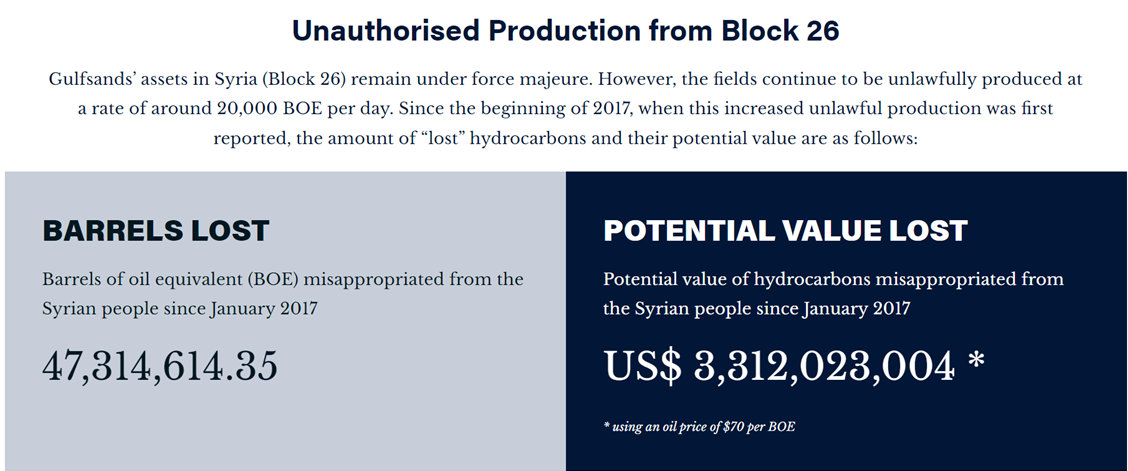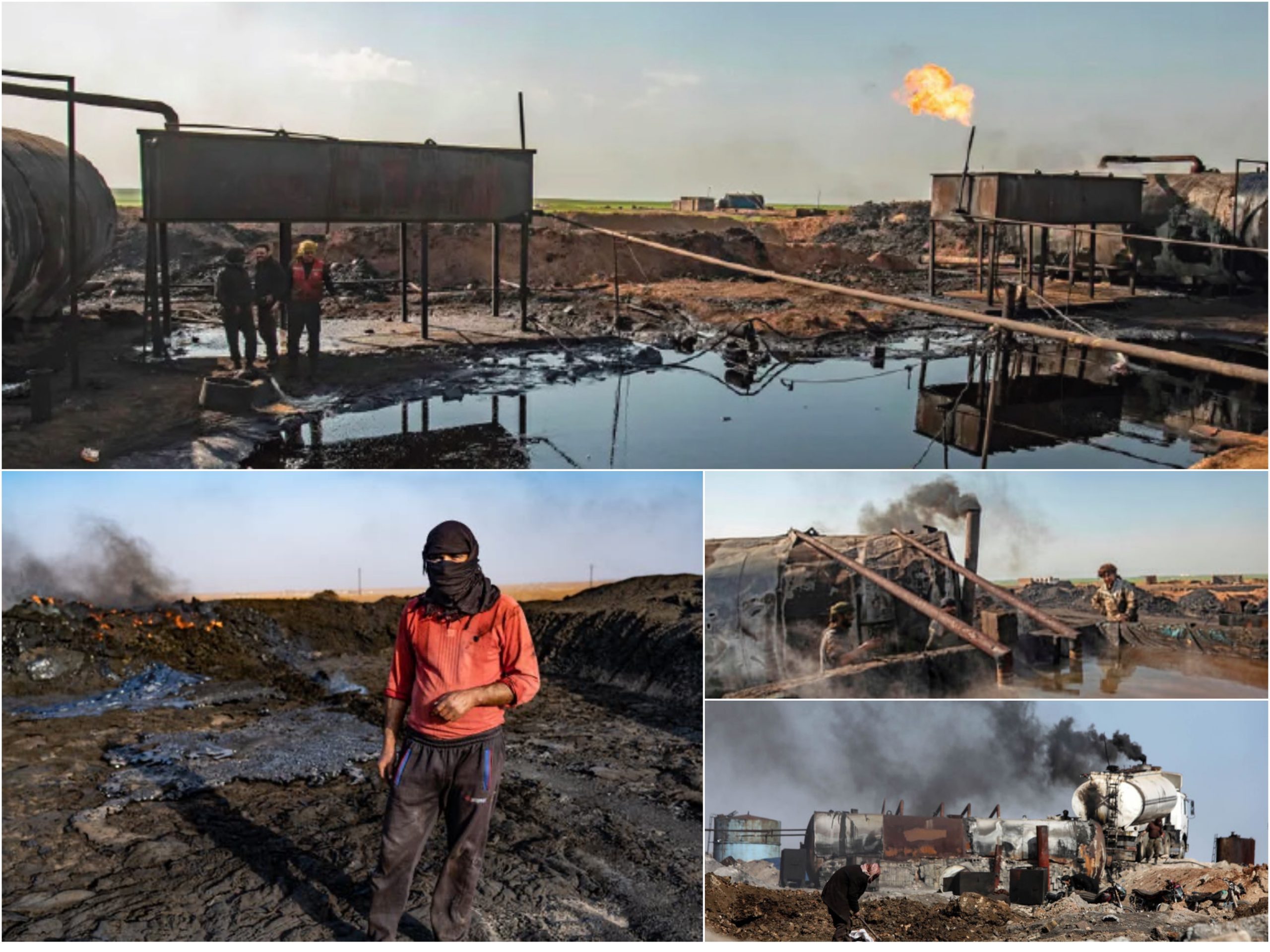
OIL THEFT AND ENVIRONMENTAL DESTRUCTION IN NORTH-EAST SYRIA CONTINUES
- Home
- /
- Media Hub Posts
- /
- OIL THEFT AND ENVIRONMENTAL...
This month marks another sobering milestone for the Syrian people and for Gulfsands.
It is now seven years since Gulfsands was informed that its Block 26 fields in North-East Syria, currently under force majeure in order to comply with UK sanctions, had been returned to significant and regular production – unlawfully.
It is now common knowledge that the perpetrators of this illicit production were, and continue to be, entities affiliated with the Autonomous Administration of North and East Syria (the “AANES”), Peoples Defence Unit (“YPG”), Syrian Democratic Forces (“SDF”) and Syrian Democratic Council (“SDC”).
We call on this unlawful production to stop immediately.
Since 2017, over 47 million barrels of oil have been unlawfully produced with a value of over US$3.3 billion(*). In the last year alone, we estimate that approximately 5.8 million barrels of oil have been unlawfully produced with a value in the region of US$480 million (at the average 2023 Brent oil price of $82.5 per barrel). The illicit production and ongoing losses continue to be monitored and measured at www.gulfsands.com.

This illicit production from Gulfsands’ Block 26 continues at a rate of approximately 20,000 barrels of oil equivalent per day (“boepd”), but this is just a small portion of the total theft in the northeast region of Syria. It is widely reported that production in North-East Syria is currently estimated to be around four times this amount, at around 80,000 barrels of oil per day (worth over US$6 million per day at today’s oil prices).
The Syrian people, however, see the benefits of only a small proportion of this value. The unlawful oil trade takes place on the black market, away from regulation and oversight, meaning prices are depressed and the potential for corruption is high. The biggest beneficiaries of this illegal production are illicit actors – not the Syrian people.
This also leads to unsafe, unregulated, and hugely environmentally damaging oil field practices which have a catastrophic effect on the health of local communities.

The United Nations’ OCHA reports that 16.7 million Syrians are currently in need of humanitarian aid, up from 15.3 million in 2023. The agency also reports that 90% of Syrians now live below the poverty line. 2023’s UN humanitarian appeal for Syria sought US$5.4 billion – the world’s largest such appeal – but only 33% of this has been funded, leaving a shortfall of US$3.62 billion.
The international community has not formally recognised or taken action against this illicit production and this oversight is costing Syria – profits from its national resource endowment could be used to help fill the funding gap in aid. Furthermore, the actions of illicit actors in unlawfully extracting and selling this oil contravenes international law, sanctions and the principles of UNSCR 2254
Project Hope
There is a desperate need for humanitarian and early recovery assistance in Syria.
The devastating earthquakes in early 2023 have only made the situation more acute, as shown in the statistics above.
Gulfsands continues to advocate for a humanitarian and economic stimulus initiative which would pave the way for international energy companies (which have all declared force majeure as result of international sanctions) to return to operations in North-East Syria, with allocated revenues from oil sales disbursed to finance early recovery, humanitarian, economic (including youth employment) and security projects across the country. This initiative is designed to be in line with UNSCR 2254 and to allow all Syrian people to benefit from their country’s national resource endowment to build self-sustainability and resilience for the future, and contribute to the counter terrorism effort in Syria.
We call this initiative Project Hope.
With investment and expertise, we estimate that production in North-East Syria could be increased from 80,000 boepd to around 500,000 boepd and generate in the region of US$15-20 billion per annum. This dwarfs the UN Humanitarian Aid funding shortfall for 2023, and the total funding contributed by the UK’s FCDO to Syria since the crisis began in 2012, (this figure stood at £3.8 billion in September 2022 according to “UKAid Syria Crisis Response Summary – February 2023” and is estimated to be around £4 billion as of today).
Gulfsands continues to work with partners in the international community to raise the profile of this issue and generate support for Project Hope.
Stay Up to Date
Connect with us on LinkedIn and Twitter



